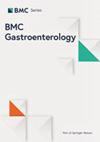Application of antithrombotic drugs and risk factor analysis in ICU patients with lower gastrointestinal bleeding from MIMIC-IV
IF 2.5
3区 医学
Q2 GASTROENTEROLOGY & HEPATOLOGY
引用次数: 0
Abstract
This study aims to assess the effects of antithrombotic therapy on the outcomes of lower gastrointestinal bleeding (LGIB) in ICU patients, focusing on in-hospital mortality, rebleeding, and length of hospital and ICU stays. This retrospective observational study utilized the MIMIC-IV 2.2 database, which includes 513 ICU patients with LGIB. The in-hospital mortality rate was 7.6%, and the rebleeding rate was 11.1%. The average Oakland risk score among the study population was 22.54. Multivariate Cox regression analysis identified the use of antiplatelet drugs as an independent protective factor for in-hospital mortality (HR = 0.37, 95% CI 0.15–0.90, p = 0.029). Patients on anticoagulants experienced significantly longer hospital stays (13.1 ± 12.2 days vs. 17.4 ± 12.6 days, p = 0.031) compared to those not using these drugs. Propensity score matching also supported these findings, indicating that antithrombotic therapy was associated with lower in-hospital mortality and longer hospital stays even after adjusting for factors like age, gender, and primary diagnosis. Our analysis using various statistical methods, including propensity score matching and multivariate regression, confirms that use of antithrombotic drugs in 2.3 days, particularly antiplatelets, are associated with a lower risk of in-hospital mortality. However, they may increase the risk of rebleeding and extend hospital stays in certain subgroups.MIMIC-IV ICU 下消化道出血患者的抗血栓药物应用和风险因素分析
本研究旨在评估抗血栓治疗对 ICU 患者下消化道出血(LGIB)预后的影响,重点关注院内死亡率、再出血以及住院时间和 ICU 住院时间。这项回顾性观察研究利用了 MIMIC-IV 2.2 数据库,其中包括 513 名 ICU LGIB 患者。院内死亡率为 7.6%,再出血率为 11.1%。研究人群的平均奥克兰风险评分为 22.54 分。多变量 Cox 回归分析发现,使用抗血小板药物是院内死亡率的独立保护因素(HR = 0.37,95% CI 0.15-0.90,p = 0.029)。与不使用抗凝药物的患者相比,使用抗凝药物的患者住院时间明显更长(13.1 ± 12.2 天 vs. 17.4 ± 12.6 天,p = 0.031)。倾向评分匹配也支持这些发现,表明即使调整了年龄、性别和主要诊断等因素,抗血栓治疗仍与较低的院内死亡率和较长的住院时间相关。我们使用各种统计方法(包括倾向评分匹配和多变量回归)进行的分析证实,在 2.3 天内使用抗血栓药物(尤其是抗血小板药物)与较低的院内死亡风险有关。但是,在某些亚组中,这些药物可能会增加再出血的风险,并延长住院时间。
本文章由计算机程序翻译,如有差异,请以英文原文为准。
求助全文
约1分钟内获得全文
求助全文
来源期刊

BMC Gastroenterology
医学-胃肠肝病学
CiteScore
4.20
自引率
0.00%
发文量
465
审稿时长
6 months
期刊介绍:
BMC Gastroenterology is an open access, peer-reviewed journal that considers articles on all aspects of the prevention, diagnosis and management of gastrointestinal and hepatobiliary disorders, as well as related molecular genetics, pathophysiology, and epidemiology.
 求助内容:
求助内容: 应助结果提醒方式:
应助结果提醒方式:


